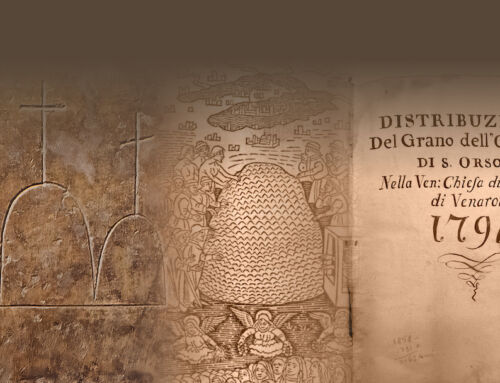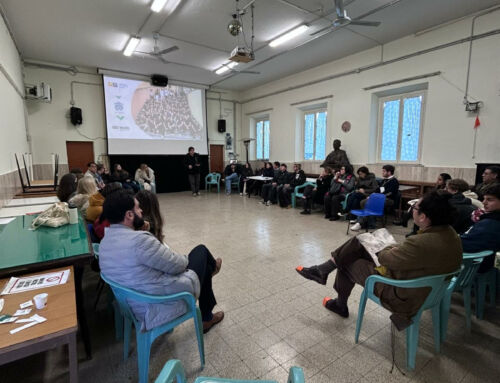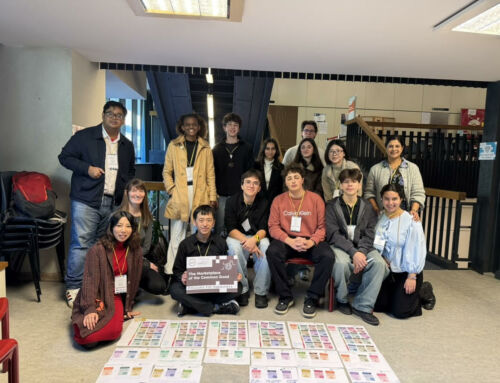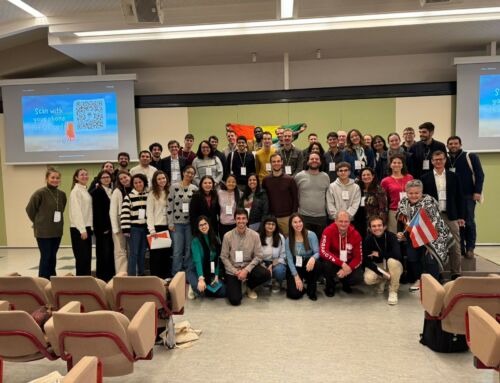Tuscany, Iran, Afghanistan, and the lingering memory
ARTICOLO PUBBLICATO su TOSCANA OGGI nel numero del 5 febbraio
A sign to celebrate and defend the value of words and their generative capacity for salvation, the fundamental right to express oneself, to protest, to defend and fight for life, rights and freedom.
“Proximity arises from an awareness of the other’s need”
With these words, among others, a few days ago Paolo Santori presented in the pages of Avvenire the meaning of the initiative promoted globally by The Economy of Francesco last January 28. The young philosopher, an active member of the EoF community since its birth, did so with the depth of thought and swiftness of action that fascinates those who have been fortunate enough to follow closely the path of this experience born from a 2019 appeal by Pope Francis addressed to the young women and men around the world to “revive the economy.” An economy understood in its broadest queries, in our way of stewardship (from minus: less), making ourselves as small as Franciscan minors, serving our common home, from the perspective of responsibility. It is nothing other than the “ability to respond” that Pope Francis has recognized (a rare example of support for future generations, in deference to the principle that words are not mere talk) to the young women and men of today in the sense of the English word “care,” taking care, and not only of responsibility reduced to “accountability,” reporting, according to the distinction made by Stefano Zamagni, a contemporary leading figure in Civil Economy as well as a wizard of words, and a lifelong friend of EoF.
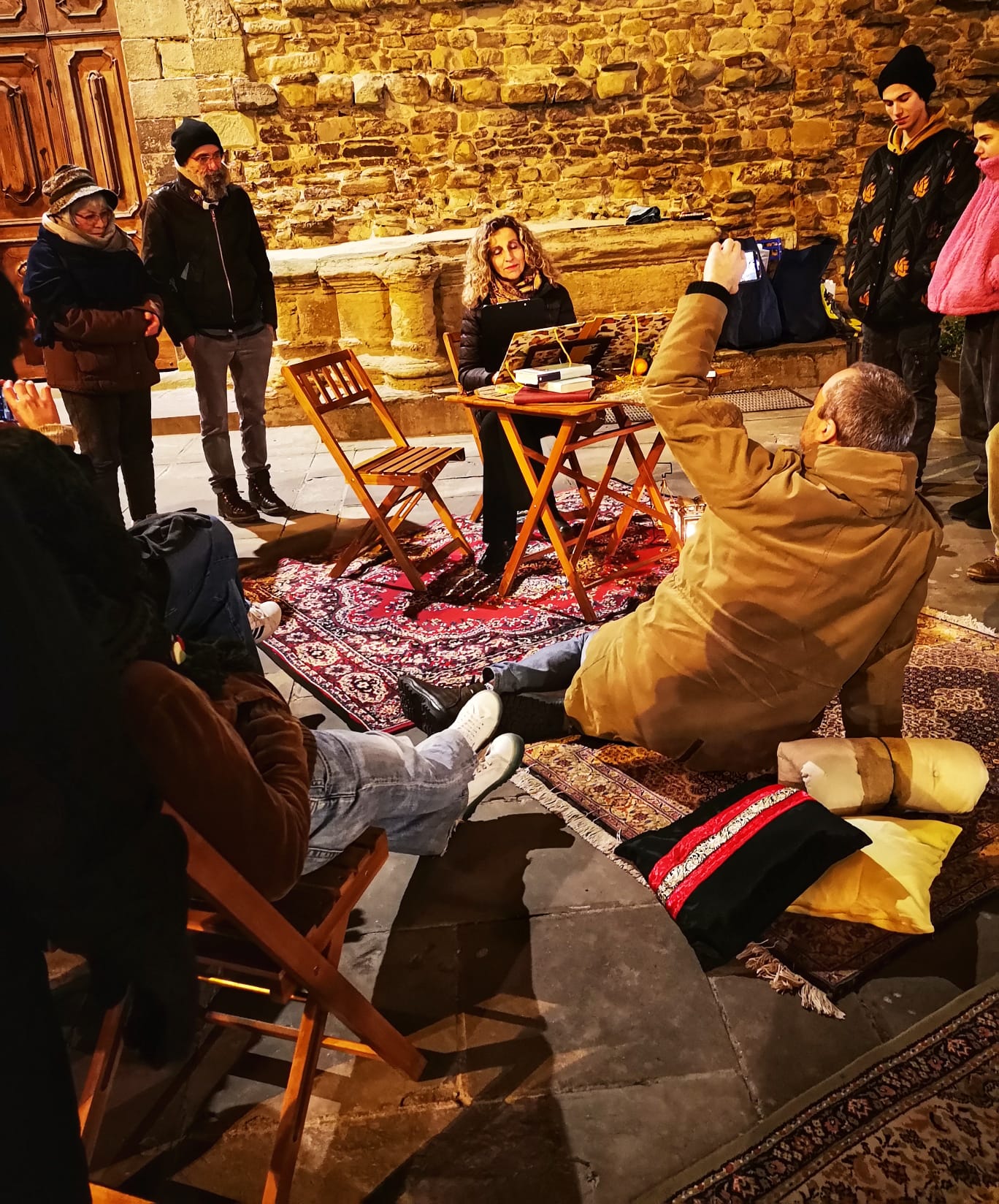
“Let our voice be heard, don’t forget us”
And they did. In Tuscany, in Arezzo, as in Germany, Portugal, Norway and many other parts of the world. All on the same day. All through the reading of excerpts from A Thousand and One Nights, in the words of Shahrazad, who manages to save herself and all the other women by entertaining the king each night with a new story and postponing the end of the tale until the next night. Without the ambition to save anyone this time, but as a sign of solidarity with the women of Iran and Afghanistan whose rights at this very moment are denied and suffocated by violence.
The protest on Saturday, Jan. 28, took place all over the world with the same provocative formula as the marathon, the quintessential test of endurance to fatigue, of the athletic feat founded on the ultra-refined management of finite psycho-physical resources. “Precisely today when every social and political issue is removed after a few days of its media blowup,” already exhausted at the firing of the blank shot on an athletic race track, merely to linger on the sports analogy. Far from 42 km and loose change and still less than a Tik-Tok, and certainly not a video, as the time it takes to pronounce two chimes: “tick” and “tock.”
“We will do it using words”
Thus the organizers used the narrative expedient of A Thousand and One Nights to remind us that storytelling is also a place where we can go to try to defeat death: a sign to celebrate and defend the value of words and their generative capacity for salvation, the fundamental right to express oneself, to protest, to defend and fight for life, rights and freedom. Twenty-two voices, readers of all ages from 13 to 80, took turns in Arezzo.
Also present was Laura, who translated and read in Braille. Absent, only at the last moment due to flu, was Shala, a Persian woman who has been in Italy for years and has committed her life and that of her family to the service of the city as the host family of the Shelter for Minors in Arezzo until its closure.
“Thank you”
These are the last words at the end of the Reading Marathon on the churchyard of the Basilica of San Francesco in Arezzo. They were delivered by the EoF organizers to the Peace and Disarmament Network of Arezzo (thanks for its valuable collaboration that made the initiative possible) and to all the people who braved the cold and hung on until the evening to give back with their silence the shore on which the words found their bridge.
A surprising readiness as the spontaneous and immediate adherence of those who accepted the invitation to read and be present. A response and care that could sound more or less like these words, “I did not expect anything else, just an opportunity to express my solidarity, my closeness.”
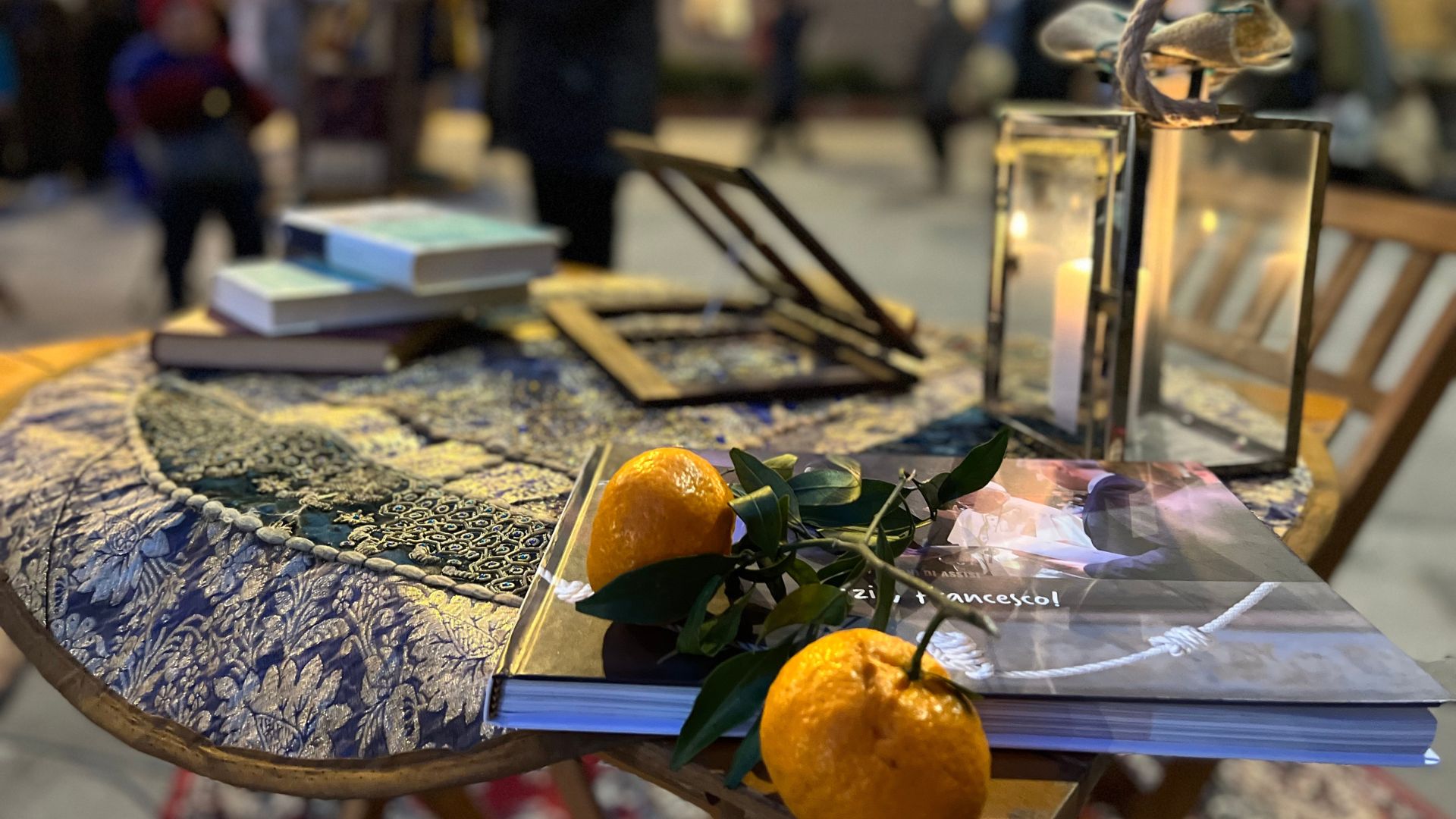
January 28 was a day of proximity, pròxima, a slippery word, consequently slidy, on the slope of space and time. The day followed January 27, a day of remembrance, as if calling us to remain vigilant about old and new Holocausts. Close to remembrance, to the heart (from cor, cordis), close to Iran and Afhganistan. Close to St. Francis and, by centimeters, to the entrance of the Basilica of St. Francis. Close to the motionless gaze of the statue that tames the lion, allegory of power, on the Basilica’s churchyard and which, perhaps not coincidentally, immortalizes Vittorio Fossombroni, a neighboring son of Arezzo, close in the sense of being not totally comprehensible within the limits of his definitions: jurist, engineer, economist … the voice of protest during the Napoleonic wars, a young witness on November 30, 1786, to the law that in the Grand Duchy of Tuscany for the first time abolished the death penalty. Fossombroni was then 32 years old, very close to the sparks of Paolo Santori and most of the young men and women of EoF.
Today EoF defines itself as an ongoing process, but perhaps it is unaware of its own capacity for change, not only what it has in power, but what it has already generated.
According to Gregory Bateson, the simplest and most common form of change is movement, and we believe that precisely “movement” is the word that best approximates EoF at this time.
Godspeed then until the new global marathon that is already set for March 8, 2023.


